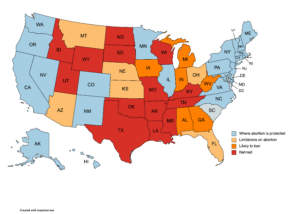If you search “#speakingout” on twitter today, you’ll find some horrible stories of sexual abuse happening in the wrestling industry. Some of the most famous wrestlers in today’s sport are being outed as predators–and have been for decades–but no one’s said anything before now.
Why did it take so long for all these victims to speak out? I looked at all the stories. I read each one. Here are the common themes:
- They felt trapped. (Usually through blackmail or emotional manipulation)
- They weren’t believed.
I’ve written before about what to do when someone’s been abused at work, but all of that is assuming HR’s been notified in the first place. What about what happens before HR is ever brought into the picture? People who have been sexually harassed or abused rarely even get to HR, assuming that’s even something required in your industry (for independent wrestling promotions, that’s rarely a thing).
So let’s circle back to feeling trapped. You want to know what the most common way victims were made to stay silent? Fear.
- Fear that those they would report to would judge them.
- Fear that no one would believe their story
- Fear that there wasn’t enough proof – that it was their word against the abuser’s- that nothing would or could be done about it
So before there even is a complaint made to HR, you need to make sure you have created a safe enough environment that your employees feel comfortable reaching out. About anything. And that there are ZERO negative consequences for doing so.
Some common reasons I’ve heard (and honestly have seen happen myself) as to why in the *corporate* setting, sexual assault victims rarely come out:
- Punishment (yes, seriously. There is a large fear that they’ll be punished instead of the abuser for “rocking the boat” and I’ve seen it happen)
- Nothing get’s done
You want to make sure your employees really feel safe? Especially those most at risk for sexual harassment and assault? Make sure they know they have a safe place to report anything that makes them uncomfortable. Then make sure you have a set action plan in case something does come up.
As leaders and CEO’s of budding startups, we have the responsibility to live up to the trust our employees have put in us. To protect them. To do what is ethical, and often hard, even though we may not legally obligated to.
Our employees spend 62% of their lives with us and our companies. Let’s show them the same dedication they show us.









